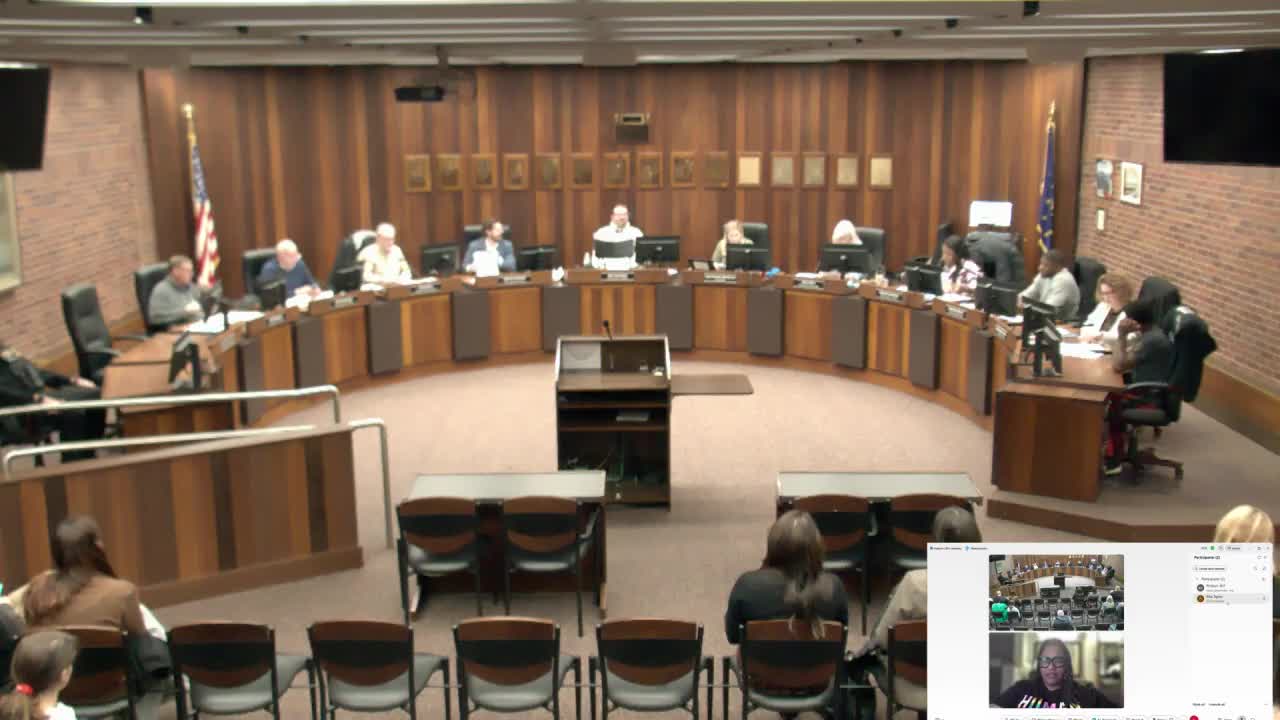Evansville council approves amended appropriations to cover salary increases, CDBG roof repair, and youth account
Get AI-powered insights, summaries, and transcripts
Subscribe
Summary
The council approved amended ordinances F2025-16 and F2025-17 to reallocate prior-year funds and cover salary increases, legal costs, MET microfare contracts, ARPA interest for Forward Together grants, and $42,000 in CDBG funds to replace the Lucas Place roof; both amendments passed unanimously.
The Evansville Common Council on Nov. 10 approved a set of amended appropriation ordinances that reallocated funds to cover salary increases, legal and operational costs, and repairs for a permanent supportive housing site.
Deputy Controller Laura Bennett told council the bulk of ordinance F2025-16 involved salary reallocations across departments to cover pay increases negotiated after the budget, including transfers to police salaries, overtime and retirement lines. Bennett outlined several specific moves: a transfer totaling about $287,895 from various departments to cover unspecified salary lines; $7,415 moved from highway to traffic engineering; a $145,000 transfer from the general fund to legal to cover a contract that arrived after the budget; $50,000 for MET’s microfares contractual services; $6,000 for Parks & Recreation sales-tax liabilities; and a $20,000 levy authority allocation ($10,000 for electric and $10,000 for small tools and minor equipment). Council discussed that many of the transfers reflected vacancies and contracts signed after the budget year.
Council adopted F2025-16 (amended) by roll call (9–0). The ordinance includes a larger transfer reported in the meeting that was described as $1,357,512 to cover police salary-related costs.
Separately, the council adopted ordinance F2025-17 (amended), which the Department of Metropolitan Development used to repurpose prior-year Community Development Block Grant (CDBG) funds for infrastructure needs. The DMD executive director said staff identified $42,000 in closed prior-year PO balances from 2017, 2020 and 2022 that could be reassigned to fund a full roof replacement at Lucas Place, a permanent supportive housing property serving families experiencing homelessness. The director also described moving $33,589.69 into a newly created account for Memorial’s youth development program to aid financial tracking. Council approved F2025-17 by roll call (9–0).
Councilors asked clarifying questions about whether Senate Bill 1 would affect the transfers (staff said SB1’s impacts are expected in 2026–27), whether vacancies funded the transfers (yes, staff said vacancies were a primary source), and when ARPA interest funds must be spent (staff said ARPA funds must be obligated by 2026; staff indicated they would verify whether interest funds have the same deadline).
